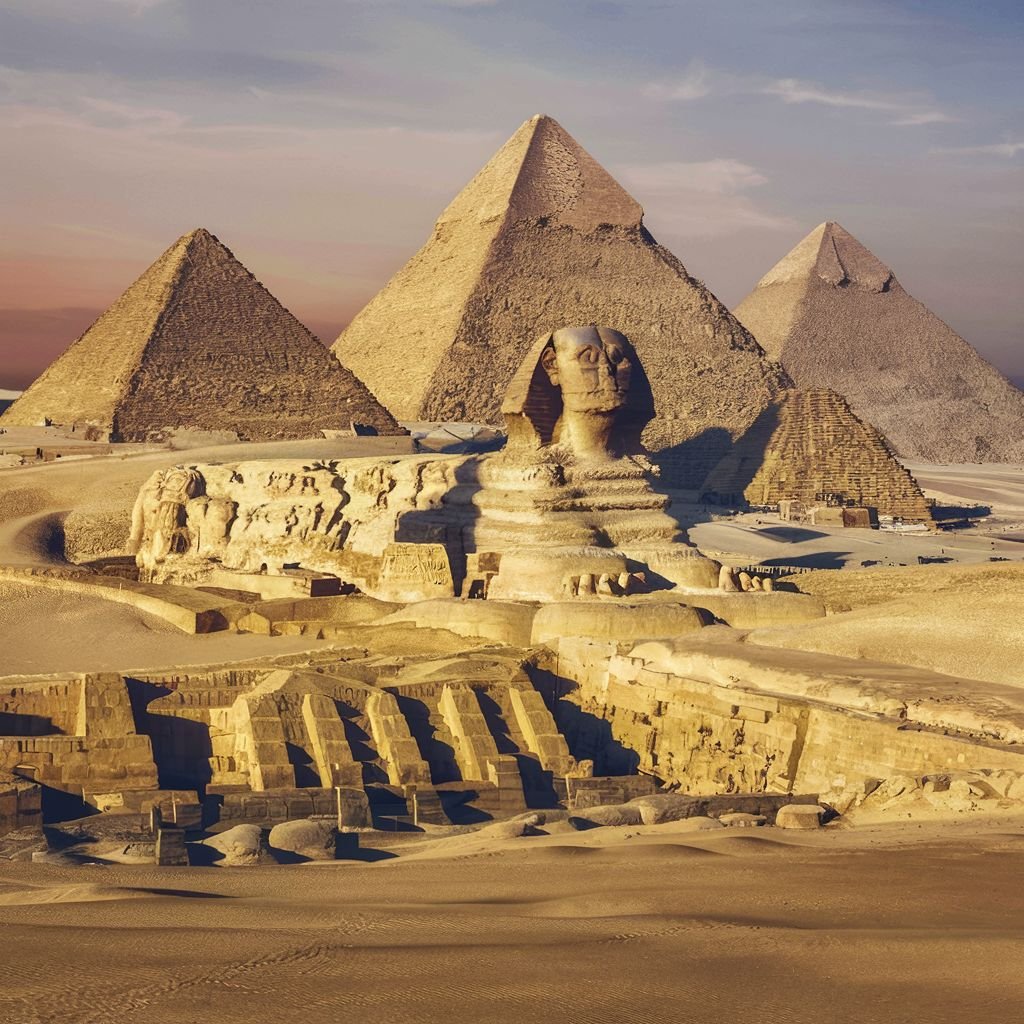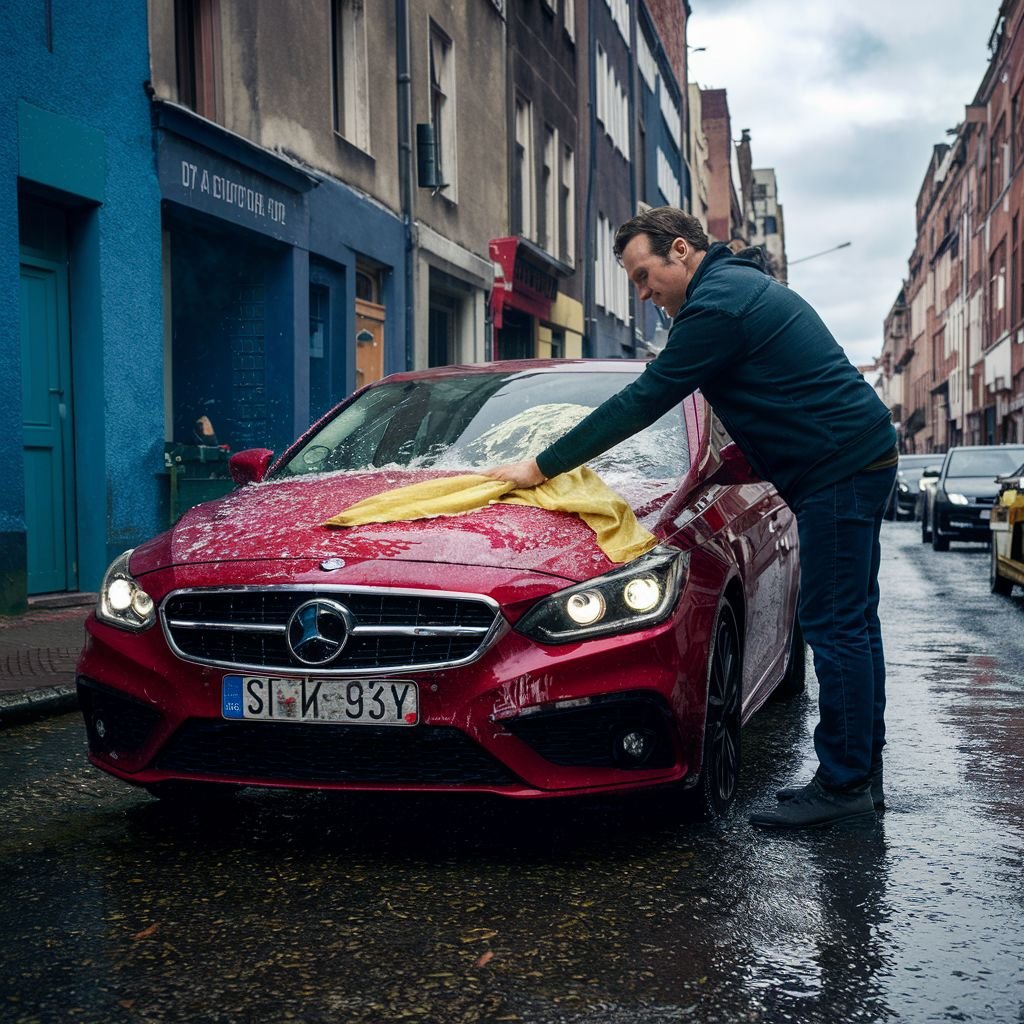Africa’s legal landscape is as diverse and vibrant as its cultural heritage, offering a unique blend of traditional values, colonial legacies, and modern-day considerations. From the practical to the peculiar, these laws offer a glimpse into the continent’s complex societal norms and the often creative ways in which they’re regulated and, yes, some pretty unusual laws that’ll make you do a double-take… So, here’s to the laws of the land—may they keep us safe, smiling, and occasionally scratching our heads in bemusement. We hope you’ll enjoy this one like you did the others.
1. No Witchcraft in Malawi

In Malawi, it’s illegal to claim you’re a witch or to accuse someone of witchcraft. It’s a law that seriously complicates the lives of Hogwarts alumni.
2. Camouflage is for Soldiers Only in Many African Countries
Wearing camouflage in countries like Nigeria, Zambia, and Zimbabwe if you’re not in the military is a no-go. So, you might want to rethink that fashion statement unless you’re ready for some real action.
3. Don’t Frown on Fridays in Uganda
In Uganda, it’s rumored you must not frown on Fridays. Start the weekend with a smile, or else! It’s as if the law is giving you a direct order to enjoy yourself.
4. No Loud Noises at Night in Egypt
Egypt takes its nighttime peace seriously, with laws against making loud noises after dark. So, if you’re planning a late-night concert with your bagpipes, think again.
5. Fortunetelling is a No-No in Swaziland (Eswatini)
Predicting the future in Eswatini can get you accused of witchcraft. So, best keep your crystal ball gazing to yourself.
6. No Marrying Your Mother-in-Law in South Africa
South Africa has a law that prohibits marrying your mother-in-law. It’s one way to keep family dinners less complicated.
7. Keep Your Car Clean in South Africa
In some parts of South Africa, allowing your car to be overly dirty is considered a public nuisance. So, give that car a bath, or you might just get a ticket to clean up your act.
8. No Eating Snakes in Benin
In Benin, it’s illegal to eat certain protected species, including snakes. So, if you were hoping for a side of serpent with your meal, you might be out of luck.
9. Don’t Insult Someone’s Mother in Kenya
Insulting someone’s mother in Kenya can land you in hot water legally. It’s a law that takes “yo mama” jokes off the table.
10. Whistling at Night is for Witches in Kenya

Another gem from Kenya: Whistling at night is considered a calling sign for witches. Best keep your musical talents for daylight hours.
11. No Shaking Rugs in Capetown After 9 AM
In Cape Town, shaking your rug in public after 9 AM is prohibited. It’s all about keeping the dust down and the peace up.
12. Don’t Be a Time Traveler in Nigeria
Claiming to have the power to jump time is illegal in Nigeria. So, all aspiring Marty McFlys might want to keep their DeLoreans parked.
13. No Kissing in Cars in Ebute-Metta, Nigeria
In Ebute-Metta, a suburb of Lagos, Nigeria, kissing in cars is frowned upon by the law. Talk about taking the brakes on public displays of affection.
14. No UFOs in Zimbabwe
After a famous UFO sighting in 1994, Zimbabwe took the extra-terrestrial question seriously by implementing airspace regulations that could technically ban UFOs. So, ET will need to phone home from elsewhere.
15. Walking Backwards at Night in Sudan
In Sudan, walking backwards after sunset could be considered suspicious behavior. It’s a quirky law that makes you wonder about the historical context.
16. No Improper Dressing in Uganda
Uganda has laws on the books about “improper dressing,” particularly targeting women. This vague statute leaves a lot up to interpretation, which could be a fashion critic’s dream or nightmare.
17. Silent Fishing in South Africa
In parts of South Africa, yelling or making loud noises while fishing is illegal. It seems fish deserve a peaceful dining experience too.
18. Mandatory Compost Pits in Rwanda
Rwanda, known for its cleanliness, requires every household to have a compost pit. It’s an eco-friendly mandate that turns waste into resource, but forget to compost at your own peril.
19. No Playing Cards After Midnight in Madagascar
Madagascar has a curfew on card playing after midnight. It’s as if Cinderella’s carriage turns into a pumpkin, and all the playing cards turn into… well, just cards.
20. No Photographing Pyramids Without a Permit in Egypt

Want to snap a selfie with the Sphinx? Make sure you have a permit. Egypt restricts photography around its archaeological sites without official permission, keeping those ancient smiles exclusive.
21. Don’t Spit in Public in Kenya
Kenya’s public decency laws include a ban on spitting in public places. It’s all part of keeping the sidewalks clean and the interactions hygienic.
22. No Plastic Bags in Rwanda
Rwanda leads the charge on environmental protection with a complete ban on plastic bags. Carry one, and you might just find yourself in a sticky situation, minus the plastic.
23. Witch Doctors Must Register in Tanzania
In Tanzania, practicing witch doctors need to register with the government. It’s a blend of traditional practices with modern legal oversight, making for a unique bureaucratic experience.
24. No Chewing Miraa After Dark in Kenya
Kenya restricts the chewing of Miraa (khat) after dark in some areas. It’s a law aimed at curbing the social effects of this stimulant, but it might just keep night owls on their toes.
25. License to Own a Television in South Africa
In South Africa, you need a license to own a television. It’s a throwback to days of yore, ensuring that your binge-watching is both legal and somewhat bureaucratic.
26. No Walking Naked in Front of Your Windows in Seychelles
In Seychelles, walking around naked in front of your open windows is a no-no. It’s all about preserving the picturesque views, both natural and human-made.
27. Mandatory Seat Belts for Cows in Nigeria
Rumors abound that in certain parts of Nigeria, transporting cows requires them to be buckled up. While its enforcement might be questionable, it’s a safety measure that gives “cowtowing” a whole new meaning.
28. Curfews on Drumming in Ghana
In Ghana, there are specific times when drumming is restricted, particularly in the capital, Accra. It’s a law that balances cultural expression with the need for peace and quiet.
29. No Insulting the King in Swaziland (Eswatini)
In Eswatini, insulting the king is not just frowned upon; it’s illegal. So, keep your royal criticisms to yourself, or you might face more than just a stern talking-to.
30. Forbidden to Drive Dirty Vehicles in Minna, Nigeria

Minna takes cleanliness seriously, with laws against driving dirty vehicles. It’s an aesthetic choice that ensures the streets are as clean as the cars that drive on them.
31. No “Moonlighting” Without a Permit in Zambia
In Zambia, you need a permit to work a night job in addition to your day job, aptly termed “moonlighting.” It’s all about ensuring your nocturnal endeavors are as official as your daytime ones.
32. Mandatory Month-End Cleaning in Kigali, Rwanda
Kigali, Rwanda, takes community cleanliness to heart with Umuganda, a mandatory community cleaning day held on the last Saturday of each month. It’s a collective effort to keep the city sparkling, but try sleeping in, and you might just get a wake-up call from local authorities.
33. Forbidden to Sell Refrigerators on Wednesdays in Malawi
Malawi once had a law that prohibited the sale of refrigerators on Wednesdays. The specifics of this law’s origins are as mysterious as they are amusing, leaving many to wonder what was so special about Wednesdays.
34. No “Idle Sitting” in Zimbabwe
Zimbabwe has laws against “idle and disorderly” behavior, which can include sitting idly in public places. So, if you’re planning on people-watching, you might want to look busy doing it.
35. Noise Restrictions on Car Horns in Egypt
Egypt restricts the use of car horns in certain urban areas to combat noise pollution. It’s an attempt to dial down the cacophony of daily traffic, giving both pedestrians and drivers a more peaceful environment.
36. No Feeding Pigeons in Cairo, Egypt
Cairo prohibits feeding pigeons as a measure to control the population and minimize health risks. So, if you’re a pigeon enthusiast, you might want to keep your birdseed to yourself.
37. Prohibition of Blue Light Bulbs in Botswana
In Botswana, using blue light bulbs outside your home is illegal because it mimics the look of police vehicles. It’s all about avoiding confusion, but it also puts a damper on your outdoor disco plans.
38. No Shaking Rugs in Public in Algeria
Similar to some parts of the world, Algeria forbids shaking your rugs in public after 9 AM. It’s a law aimed at keeping the dust down and neighbors happy, making morning the only time for a good rug shake-down.
39. License Required for Public Performances in Kenya
In Kenya, you need a license to perform any form of public entertainment, including plays, concerts, and exhibitions. It’s a measure to regulate public spaces, but spontaneous street performers, beware.
40. Prohibition of Loud Music in Namibia After 10 PM

Namibia enforces a curfew on loud music after 10 PM in residential areas. It’s a bid to ensure everyone gets a good night’s sleep, so save your dance parties for the daylight hours.
41. Prohibition of Plastic Bags in Kenya
Kenya enforces a strict ban on the use, manufacture, and importation of plastic bags, highlighting the country’s commitment to environmental conservation. Violators can face hefty fines or imprisonment, so think twice before packing that plastic.
42. Mandatory Chicken Vaccination in Ethiopia
In Ethiopia, there’s a law requiring chickens to be vaccinated against certain diseases. It’s a public health measure with a clucky twist, ensuring that both poultry and people stay healthy.
43. Witchcraft Regulation in South Africa
South Africa has specific regulations regarding the accusation of witchcraft and the practice of harmful magic. It’s a modern approach to managing an issue deeply rooted in cultural and historical contexts, aiming to protect citizens from accusations that could lead to harm.
44. No Honking Near Hospitals in Morocco
To ensure peace and quiet for patients, Morocco has implemented laws against honking car horns near hospitals. It’s a thoughtful regulation that prioritizes the well-being of those in need of rest and recovery.
45. Restrictions on Dog Barking in South Africa
In some South African municipalities, there are restrictions on how long a dog can bark before it’s considered a nuisance. Dog owners, make sure your furry friends are well-behaved, or you might have to answer to more than just the neighbors.
46. Curfews on Bridal Processions in Egypt
Egypt has set curfews for bridal processions to minimize traffic disruption and ensure public safety. So, if you’re planning a grand, late-night entrance to your wedding, you might need to adjust your timeline.
47. No Public Eating During Ramadan in Algeria
Algeria enforces a law against public eating during the daylight hours of Ramadan, out of respect for those observing the fast. It’s a measure that reflects the country’s majority Muslim population and their religious practices.
48. License to Chew Gum in Tanzania
Following a similar regulation to Singapore, Tanzania requires a medical reason and a subsequent license to chew gum. It’s a sticky situation for gum enthusiasts, emphasizing cleanliness and public etiquette.
49. Mandatory Hats for Taxi Drivers in Egypt
In Egypt, taxi drivers are required to wear hats as part of their uniform, aiming to promote professionalism and respectability in the trade. So, next time you hop into a cab in Cairo, don’t be surprised if the driver is cap-donning.
50. No Washing Cars in the Street in Mauritius

Mauritius prohibits the washing of cars in public streets to conserve water and prevent pollution. It’s an environmental conservation effort that keeps the streets clean and the waterways clearer.
51. Ban on Importing Honey in Zambia
Zambia prohibits the importation of honey to protect its local beekeeping industry. It’s a sweet deal for local producers, ensuring that the buzz around Zambian honey stays within its borders.
52. Compulsory Car Wash in Rwanda
Rwanda, known for its cleanliness, once made headlines with a law requiring every car in Kigali to be washed at least once a week. While aimed at keeping the city tidy, it also sparked a boom in car wash businesses.
53. No Loud Music in Residential Areas After 8 PM in Ghana
To ensure community peace, Ghana enforces a law against playing loud music in residential areas after 8 PM. It’s a sound policy to ensure that the only thing dropping late at night is the beat, not your neighbor’s patience.
54. Mandatory Pre-Marriage Pregnancy Test in Congo
In the Republic of Congo, couples are required to take a pregnancy test before tying the knot. It’s a unique approach to premarital counseling, ensuring that all parties know what’s coming down the aisle.
55. Prohibition of Blue Jeans on Fridays in Tanzania
Tanzania once had a law that banned the wearing of blue jeans on Fridays to promote traditional attire. It’s a fashion-forward move that encourages cultural pride over casual Fridays.
56. Ban on Smoking in Public Places in Kenya
Kenya’s tough stance on public health includes a comprehensive ban on smoking in public places. It’s a breath of fresh air for non-smokers and a nudge for smokers to consider their health.
57. No Selling Alcohol Before Lunch in South Africa
South Africa restricts the sale of alcohol before 11 AM on weekdays and Saturdays. It’s a measure aimed at promoting responsible drinking, ensuring that the early bird catches the worm, not the whiskey.
58. Illegal to Wear Slippers After Dark in Uganda
In Uganda, there’s a curious regulation against wearing slippers after dark. It’s possibly aimed at encouraging proper footwear, but it leaves flip-flop aficionados tiptoeing around the law after sunset.
59. Mandatory Installation of Breathalyzers in Nightclubs in Rwanda
Rwanda requires nightclubs to install breathalyzers to combat drunk driving. It’s a proactive approach to public safety, making sure the only spinning happening after a night out is from the DJ’s turntable.
60. No Eating of Pythons in Botswana

Botswana has a law protecting pythons, making it illegal to kill or eat them. It’s a conservation effort that also spares adventurous eaters from a potentially slippery meal.
61. No Wearing of Nightgowns in Public in Sudan
In Sudan, it’s considered indecent to wear nightgowns in public. This law underscores the importance of public decorum and the cultural standards of dress, ensuring that bedtime fashion stays within the confines of one’s home.
62. Compulsory Learning of a Second Language in Zimbabwe
Zimbabwe mandates that students learn a second language, reflecting the country’s rich linguistic diversity. It’s an educational policy that fosters communication and understanding among its varied ethnic groups, promoting unity in diversity.
63. Restrictions on Plastic Bottle Sales in Mauritius
To combat environmental pollution, Mauritius has imposed restrictions on the sale of plastic bottles on certain days. This environmental conservation effort encourages the use of sustainable materials and contributes to the island’s pristine beauty.
64. Prohibition of Loudspeakers in Mosques in Rwanda
Rwanda, in its bid to regulate noise pollution, has placed restrictions on the use of loudspeakers in mosques. It’s a balance between religious practices and maintaining peace in residential areas, showcasing the government’s nuanced approach to community harmony.
65. Mandatory Speed Governors on Public Transport Vehicles in Kenya
Kenya requires all public transport vehicles to be fitted with speed governors to reduce road accidents. This safety regulation is part of a broader campaign to ensure the well-being of passengers and pedestrians alike, making the roads safer for everyone.
66. No Cutting Down Trees Without Permission in Zambia
In Zambia, you must have official permission before cutting down trees, a law aimed at preventing deforestation and protecting the environment. It underscores Zambia’s commitment to environmental conservation and the sustainable management of its natural resources.
67. Ban on Outdoor Advertising Billboards in Gambia
The Gambia has banned outdoor advertising billboards to preserve the natural beauty of the landscape. This law reflects an understanding of the value of uncluttered spaces and the importance of maintaining the aesthetic appeal of the environment.
68. Illegal to Leave Your Home Without Knowing Where You’re Going in Somalia
In Somalia, there’s a law that makes it illegal to leave your home without knowing your destination. While challenging to enforce, this statute highlights the importance of purposeful movement within a context of security concerns.
69. Curfew on Drum Usage in Tanzania
Tanzania imposes a curfew on the use of drums to prevent noise pollution at night. This law balances the cultural significance of drumming with the need for quiet evening hours, respecting both tradition and tranquility.
70. No Selling of Alcoholic Beverages Near Schools in Angola

Angola prohibits the sale of alcoholic beverages within a certain distance from schools, a measure aimed at protecting students and maintaining a focus on education. It’s a public health initiative that prioritizes the well-being and safety of the youth.
71. License Required for Fortune Telling in Egypt
In Egypt, practicing fortune telling or tarot card reading professionally requires a special license. This regulation aims to oversee the practice, ensuring that those claiming to predict the future are accountable under the law.
72. Ban on Loud Music in Public Buses in Nigeria
To ensure a peaceful journey for all passengers, Nigeria has laws against playing loud music in public buses. This initiative helps maintain a serene travel environment, allowing passengers to enjoy or endure their commutes in relative quiet.
73. Prohibition of Sale of Cough Syrup Without Prescription in Zambia
Zambia restricts the sale of cough syrup without a prescription due to concerns over misuse and addiction. It’s a public health policy aimed at combating drug abuse while ensuring those genuinely in need have access to necessary medication.
74. Mandatory Car Seats for Children in South Africa
South Africa requires that all children traveling in vehicles be secured in car seats. This law prioritizes the safety of young passengers, reducing the risk of injury in road accidents and highlighting the country’s commitment to child welfare.
75. Restrictions on Importing Second-hand Clothing in Rwanda
To protect the local textile industry and maintain public health standards, Rwanda has restrictions on importing second-hand clothing. This policy supports local businesses and ensures that the Rwandan market is not flooded with low-quality imports.
76. Ban on Single-Use Plastic Bags in Morocco
Morocco joined the list of African nations banning single-use plastic bags to combat pollution and protect the environment. This law is part of a broader initiative to reduce waste and promote sustainability.
77. Curfew for Minors in Tunisia
Tunisia enforces a curfew for minors to safeguard young people’s well-being and prevent juvenile delinquency. This regulation reflects the country’s proactive approach to youth protection and community safety.
78. Illegal to Purchase Alcohol on Election Day in Ghana
To ensure orderliness and prevent undue influence, Ghana prohibits the purchase of alcohol on election days. This measure aims to maintain peace and ensure that electoral processes are conducted in a sober and serene environment.
79. No Naming Children After Celebrities in Ivory Coast
In Ivory Coast, there’s a regulation against naming children after famous celebrities to maintain cultural integrity and prevent identity confusion. It’s a unique approach to preserving cultural identity and familial heritage.
80. Mandatory Installation of Water Tanks in New Buildings in Namibia

Namibia requires new buildings to install water tanks as part of efforts to conserve water in one of the world’s driest countries. This law underscores the importance of sustainable resource management and environmental stewardship.
81. Compulsory Voting in Egypt
Egypt has a law that makes voting compulsory for all eligible citizens, emphasizing the importance of civic participation in governance. While enforcement may vary, the statute underlines the value placed on democracy and individual responsibility.
82. Ban on Exporting Raw Minerals in Botswana
Botswana, rich in natural resources, has implemented laws prohibiting the export of raw minerals. This measure aims to encourage local processing and value addition, fostering economic growth and job creation within the country.
83. Prohibition of Beach Sand Removal in Seychelles
To preserve its stunning beaches, Seychelles prohibits the removal of sand from its shores. This law protects the island nation’s natural beauty, crucial for its tourism industry, and prevents environmental degradation.
84. Restrictions on Drone Usage in Kenya
Kenya has strict regulations on drone ownership and usage, requiring operators to obtain permits. This policy addresses privacy and security concerns, ensuring that drone technology is used responsibly and does not infringe on citizens’ rights.
85. Ban on Plastic Straws in Rwanda
Continuing its environmental leadership, Rwanda bans plastic straws, furthering its commitment to sustainability and combating plastic pollution. This regulation complements the nation’s broader efforts to maintain cleanliness and protect natural habitats.
86. Mandatory Helmet Law for Cyclists in South Africa
In South Africa, cyclists are required to wear helmets, a safety measure aimed at reducing head injuries. This law reflects the country’s approach to road safety and the well-being of its citizens, encouraging healthy lifestyles while ensuring necessary precautions.
87. Illegal to Wear Military Attire in Nigeria
In Nigeria, it’s illegal for civilians to wear military or camouflage attire. This law aims to prevent impersonation and maintain respect for the armed forces, ensuring clear distinctions between military personnel and the civilian population.
88. No Graffiti Without Permission in Tunisia
Tunisia requires artists to obtain permission before creating graffiti or street art. This regulation balances artistic expression with property rights and urban aesthetics, fostering a respectful approach to public spaces.
89. Restrictions on Public Smoking in Mauritius
Mauritius limits smoking in public places, a health initiative designed to protect non-smokers and reduce the public health impacts of tobacco. This law mirrors global trends in promoting healthier environments and lifestyles.
90. No Shouting in Residential Areas After 10 PM in Uganda
To ensure peaceful evenings, Uganda prohibits shouting in residential areas after 10 PM. This law highlights the community’s value on tranquility and respect for one’s neighbors, ensuring that the night’s calm is preserved for all.
91. Obligatory Use of Local Fabrics in Government Offices in Ghana
Ghana promotes its rich textile heritage by requiring government officials to wear clothes made from local fabrics on Fridays. This initiative not only celebrates Ghanaian culture but also supports local industries and artisans, reinforcing national pride and economic development.
92. Prohibition of Loud Music in Mozambique Without a License
To curtail noise pollution, Mozambique mandates that any public playing of loud music must be licensed. This law underscores the balance between cultural expression and maintaining public order, ensuring that festivities do not disrupt the community’s peace.
93. Mandatory Ownership of a Television in Eritrea
In an unusual twist, Eritrea requires every household to own a television, aiming to keep citizens informed about news and government policies. While enforcement might be challenging, it highlights the importance placed on national connectivity and information dissemination.
94. Restrictions on Naming Children in Morocco
Morocco has specific guidelines for naming children, ensuring that names reflect the country’s Islamic heritage and are not offensive or demeaning. This law preserves cultural and religious values, ensuring that names carry appropriate meaning and respect.
95. Ban on Hunting Endangered Species in Kenya
Kenya, with its rich wildlife heritage, strictly prohibits the hunting of endangered species, reflecting its commitment to conservation and biodiversity. This law is vital for preserving the country’s natural heritage and promoting eco-tourism.
96. Prohibition of Bush Burning in Nigeria
Nigeria bans bush burning to prevent environmental degradation and protect agricultural land. This law addresses the risks of uncontrolled fires, soil erosion, and loss of biodiversity, highlighting the country’s efforts in environmental conservation.
97. Compulsory Vaccination in Angola
Angola requires mandatory vaccinations for children against common diseases, showcasing the country’s dedication to public health and the prevention of communicable diseases. This policy is crucial for safeguarding children’s health and ensuring a healthier future.
98. Ban on Public Consumption of Alcohol in Sudan
Sudan enforces a ban on the public consumption of alcohol, reflecting the country’s Islamic laws and cultural norms. This regulation aims to maintain public decorum and align with religious values.
99. Regulation of Water Usage in Namibia
Facing water scarcity, Namibia regulates water usage, including restrictions on non-essential use during drought conditions. This law underscores the importance of sustainable water management in one of the world’s driest countries.
100. Illegal to Import Second-hand Electronics in Rwanda
Rwanda prohibits the import of second-hand electronics to prevent the country from becoming a dumping ground for e-waste. This law promotes environmental sustainability and encourages the use of newer, more energy-efficient technologies.









